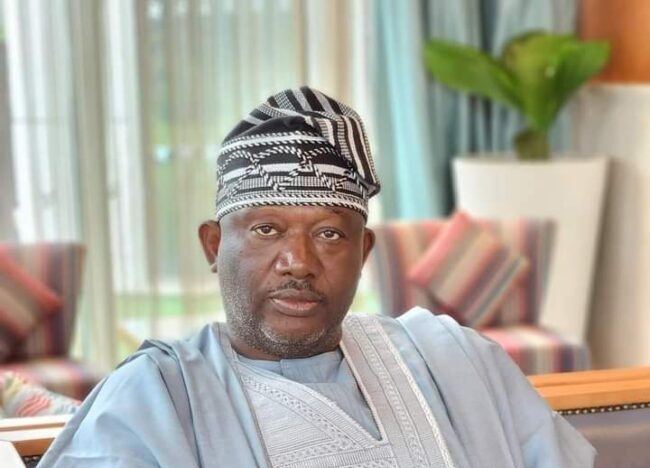The leadership of the Non-Academic Staff Union of Educational and Associated Institutions (NASU) has made a heartfelt appeal to the Federal Government of Nigeria, urging it to release the withheld salaries of its members. This issue has remained unresolved for several months, and NASU is pressing for immediate action to prevent further industrial unrest across the nation’s educational institutions.
At a two-day National Executive Council (NEC) meeting held in Abuja, union’s President, Dr. Makolo Hassan, made the appeal directly to Wale Edun, the Minister of Finance and Coordinating Minister of the Economy. Dr. Hassan emphasized that despite directives from President Bola Tinubu to address the matter, the withheld salaries of NASU members in the universities and inter-university centres remain unpaid.
The union reiterated the need for immediate payment of at least 50 percent of the withheld salaries, in line with President Tinubu’s instructions. According to Hassan, “This is in spite of the fact that we have been informed that President Bola Tinubu has directed that 50 percent of the unpaid salary, that is the two months, be paid.” He added that the Minister of Finance appears to be the stumbling block in executing the president’s order.
Hassan also used the platform to appeal directly to the minister, urging swift action to ensure the president’s directive is followed, saying, “NASU would like to use this forum to appeal to him to ensure that the directive is implemented to avert further industrial crises in our universities and inter-university centres.”
The matter of unpaid salaries has long been a source of frustration for the union. NASU has consistently engaged in dialogues and negotiations with the government, yet tangible solutions have been slow in coming. Hassan warned that failure to resolve this issue could lead to an escalation of industrial action, which would severely disrupt the functioning of educational institutions.
Beyond the immediate issue of unpaid salaries, the NASU president urged the government to address the broader concerns outlined in previous agreements and Memoranda of Understanding with the union. These include the need for reforms aimed at improving the welfare of non-teaching staff and enhancing the overall efficiency of the education sector.
Specifically, Hassan called for the implementation of policies that would allow non-academic staff to benefit from the recently approved extension of retirement age to 65 years and 40 years of service.
One of the critical demands of the union is the constitution of boards for the nation’s research institutions. According to Hassan, establishing these boards would significantly boost productivity and innovation. Additionally, he called on President Tinubu to ensure that the boards of teaching and specialist hospitals are constituted to promote effective governance and improve the healthcare services they provide.
The education sector, Hassan stressed, faces numerous challenges, including inadequate funding, decaying infrastructure, and poor staff welfare, all of which continue to hinder the fulfillment of the sector’s mandates. “Addressing these issues is critical to reversing the downward trend in our educational system and to fulfilling the potential of our institutions,” Hassan concluded.
In response to NASU’s demands, the Minister of Education, Prof. Tahir Mamman, emphasized the government’s commitment to building an education system that future generations could be proud of. While Mamman did not address the specific issue of unpaid salaries, he underscored the importance of focusing on productivity amid the current economic challenges facing the country.
Represented by the Executive Secretary of the National Commission for Colleges of Education, Prof. Pauline Okwelle, Mamman encouraged education stakeholders to embrace technology as a means of enhancing efficiency.
“This requires us to be adaptable and innovative. The digital economy presents us with numerous opportunities to streamline and improve our services,” Mamman noted. He also urged NASU members to embrace digital skills training to improve service delivery and boost productivity in the evolving landscape of higher education.
In a call for professionalism, Mamman reminded NASU members that they play an integral role in the academic community. “As representatives of our institutions, we must exemplify professionalism and integrity in all our interactions. This not only boosts our reputation, it also instills confidence among members of our academic community,” he added.
The critical role of non-academic staff in the educational system was also highlighted by the Acting Vice-Chancellor of the University of Abuja, Professor Aisha Maikudi. Speaking at the event, Prof. Maikudi acknowledged the often-overlooked contributions of NASU members in ensuring the smooth operation of educational institutions.
“From administrative duties to ensuring that our campuses are conducive for learning, research, and innovation, your contribution is essential to the success of the university system and education as a whole,” she said.
Maikudi’s comments echoed the broader sentiment expressed at the NEC meeting, which was that non-academic staff are vital to the functioning of Nigeria’s educational institutions. Without their commitment and hard work, the sector would struggle to meet its goals and deliver quality education to students.
The union also expressed its unwavering commitment to advocate for its members and the wider education sector, and expressed hopes that the government will not only address the immediate issue of unpaid salaries but also work towards lasting solutions that will improve the quality of education in Nigeria.
READ ALSO: Obi condemns killing of 16 youths in Anambra

 2 hours ago
5
2 hours ago
5








 English (US) ·
English (US) ·